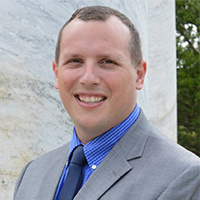Bowie Trusts Lawyer, Maryland, page 7
Sponsored Law Firm
-
 x
x

Click For More Info:
-
Ritter Elder Law & Estate Planning
30 Industry Lane Prince Frederick, MD 20678» view mapEstate Law Comprehensive & Strategic Estate Plans
I am confident that my firm will be able to assist your family with all of your estate planning needs. Let our team assist you with preparing a comprehensive & strategic estate plan.
800-935-7351
George Arthur Bealefeld
Family Law, Criminal, Litigation, Trusts
Status: In Good Standing Licensed: 22 Years
Gregory Edward Taitt
Employee Rights, Family Law, Trusts, Other
Status: In Good Standing Licensed: 25 Years
Guru Shanmugamani
Criminal, Federal Appellate Practice, Civil Rights, Business, Trusts
Status: In Good Standing
 Brian Ritter Jr. Prince Frederick, MD
Brian Ritter Jr. Prince Frederick, MD Practice AreasExpertise
Practice AreasExpertise